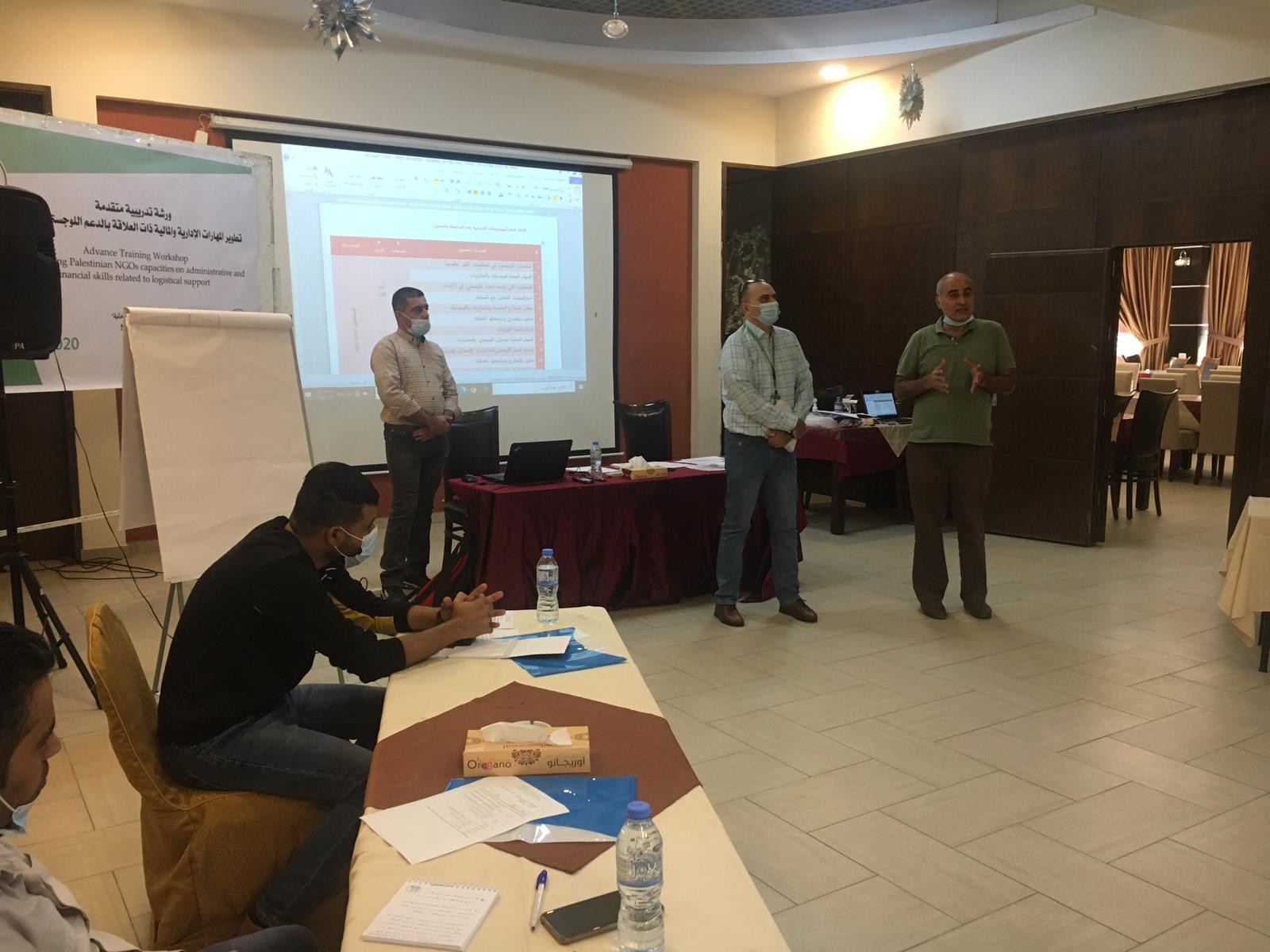This was a part of the "Strengthening democracy and building the capacity of civil society organizations," project, which was implemented in partnership with Norwegian People's Aid (NPA).
The training targeted 20 NGOs working in the field of procurement or logistical support to receive ten training hours over two days.
Logistics services in non-governmental organizations, general tasks of logistical support and procurement, the main challenges facing logistical work were the aspects of the training, alongside with risk response and monitoring and evaluation
Amjad Al Shawa, PNGO director, emphasized in his opening speech that the workshop comes within the efforts of the Network to develop the administrative and financial skills of Palestinian NGOs as well as their ability to enhance their role in providing services and interventions and better humanitarian response to our people, especially in times of emergency.
Al Shawa pointed out the importance of this workshop in the current conditions of facing the repercussions of the spread of the Corona pandemic and the Israeli blockade impact on reality. This comes hand in hand with the response of civil society organizations and their adherence to the principles of transparency and integrity in their work.
This training workshop comes to complete the training held by the network last July, Al Shawa explained and aims to strengthen the practical side of the organizations in the framework of logistical support.
Osama Damo, Norwegian People's Aid Palestine Programs Director, stressed the importance of the partnership between PNGO as well as the importance of the network’s role in building the capacities of member organizations, especially in the issue of logistical support for organizations.
Damo highlighted that the impact of the Corona pandemic affected all levels regarding administration, but that the work of the procurement and logistics department did not stop because of its great impact on the work of organizations.
In turn, the training team expressed that the aim of the training is to develop and build the capacities of trainees in managing procurement procedures and managing the supply chain in normal and emergency situations. The manner chosen for the training is practical and it is implemented by discussing the models that are carried out by NGOs.
The trainees, on the other hand, asserted that the second training workshop came to meet the practical needs of workers in the procurement and the finance department. Organizations made use of the first workshop to develop their own models, and this training came to confirm the methods received from the practical models and benefit from the models used by other organizations.


